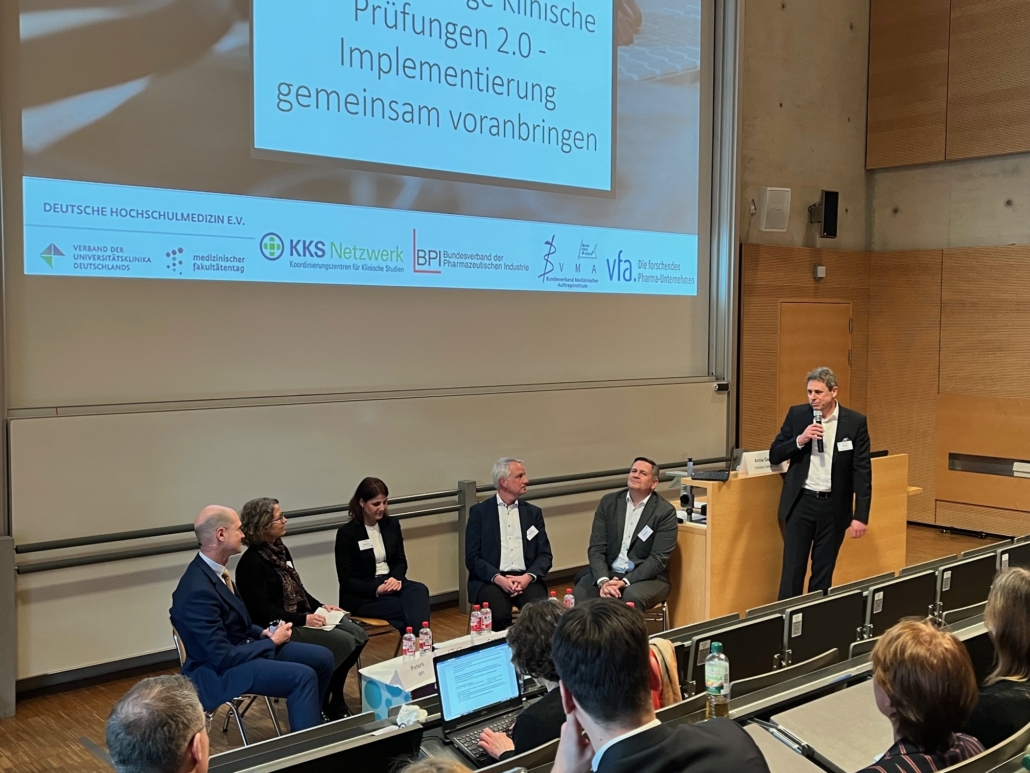
New law to speed up clinical trials
With a new law, the German government wants to increase the number of clinical trials conducted in Germany and make the country number one in Europe again.
The draft Medical Research Act (Medizinforschungsgesetz) presented by Health Minister Karl Lauterbach in Berlin before Easter is the centrepiece of Germany’s pharmaceutical strategy. With this strategy, the federal government wants to make Germany more attractive again as a location for biopharmaceutical production and R&D. The Medical Research Act is intended to help remove bureaucratic and legal obstacles that currently prevent the rapid start of industry-sponsored and investigator-initiatied clinical trials in Germany.
As Germany had fallen from 2nd to 6th place worldwide in terms of the number of clinical trials between 2016 and 2021, politicians saw a need for action following strong pressure from the pharmaceutical industry, CRO and medical associations. With the draft Medical Research Act, the German Ministry of Health aims to improve the framework conditions for the development, authorisation and manufacture of medicinal products and medical devices in Germany. To this end, the authorisation procedures for clinical trials at the German regulatory authority BFArM, which is subordinate to the Federal Ministry of Health, will be shortened to 26 days and a central ethics committee subordinate to the ministry will take over the role of the previous state ethics committees. In addition, the Federal Ministry of Health recommends using model contract clauses drawn up by industry and medical associations in a legally non-binding manner in order to speed up negotiations between study clinics and study sponsors, which are particularly lengthy in Germany.
Pharmaceutical, biotech, CRO and medical associations had recommended that the model contract clauses they developed and publicly presented at the end of 2023 be made legally binding by ordinance, as a quick conclusion of contracts between study sponsors and clinics is considered essential for a quick start to studies. While it usually takes 4-6 months to conclude such a contract in Germany, it takes much less time in neighbouring countries such as France (76 days), Spain (111 days) and the UK (134 days), as binding standard contractual clauses have been in place there for years.
When presenting the draft bill, German Health Minister Karl Lauterbach, who is known to be resistant to consultation, was highly optimistic that the years-long backlog would be made up: “We will see significantly more pharmaceutical and academic studies in Germany in the coming years,” he said. However, as essential wishes of the industry – such as legally binding model contract clauses or the authority of the well-established state ethics commissions to issue directives – were ignored and sacrificed to the ministry’s claim to leadership, the Medizinforschungsgesetz was met with disappointment in the industry.
“It is regrettable that the current version of the Medical Research Act misses the opportunity to achieve a significant breakthrough that could automatically bring us closer to the international forefront of clinical trials,” said Martin Krauss, head of the VDMA, which represents the interests of contract research organisations (CROs), which carry out 60% of clinical trials. The planned establishment of a central ethics committee subordinate to the Bfarm calls into question the independence of the ethical evaluation of study projects, criticised the German Medical Association BÄK. The state ethics committees organised in the AKEK also do not find the draft law expedient: “The Medical Research Act does not solve any problems regarding the regulation of clinical studies. Instead, it creates new problems by creating a parallel bureaucracy,” said Georg Schmidt, Chairman of the AKEK.
From the point of view of lawyers who were significantly involved in the drafting of the model contract clauses, the draft law does not advance Germany one centimetre as a study location. “The regulations related to standard contractual clauses for the conduct of clinical trials of the draft of the Medizinforschungsgesetz leaves much room for improvement,” stressed Dr Ute Kilger, Partner at Boehnmert & Boehmert in Berlin”. The lack of any binding regulation in this regard is particularly disappointing. The mere publication of such clauses will not help to speed up contract negotiations. This way Germany will not catch up with other European countries as UK, Spain and France. The German proposal is overcautious where courageous decision making would be required. It remains to hope that the German health ministry will at least not re-invent the wheel and will apply the contract clauses that have been agreed upon after lengthy negotiations between the affected stake holders, associations and organizations.
This story is continuously updated with statements.



 EC- press service
EC- press service AseBio
AseBio